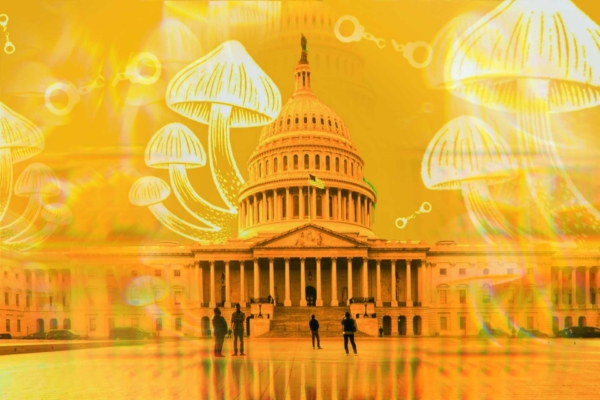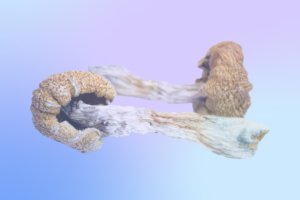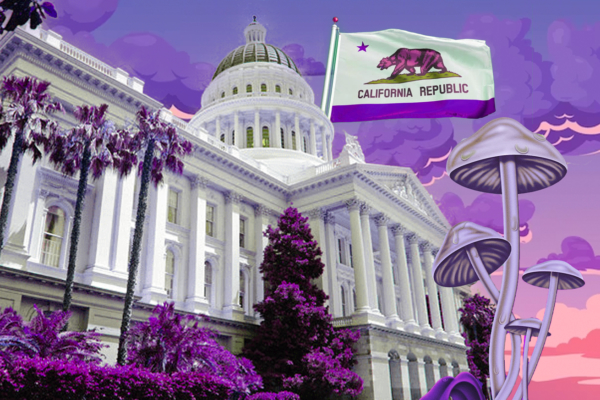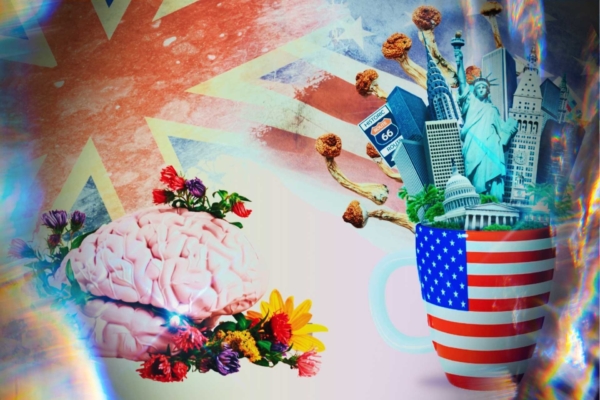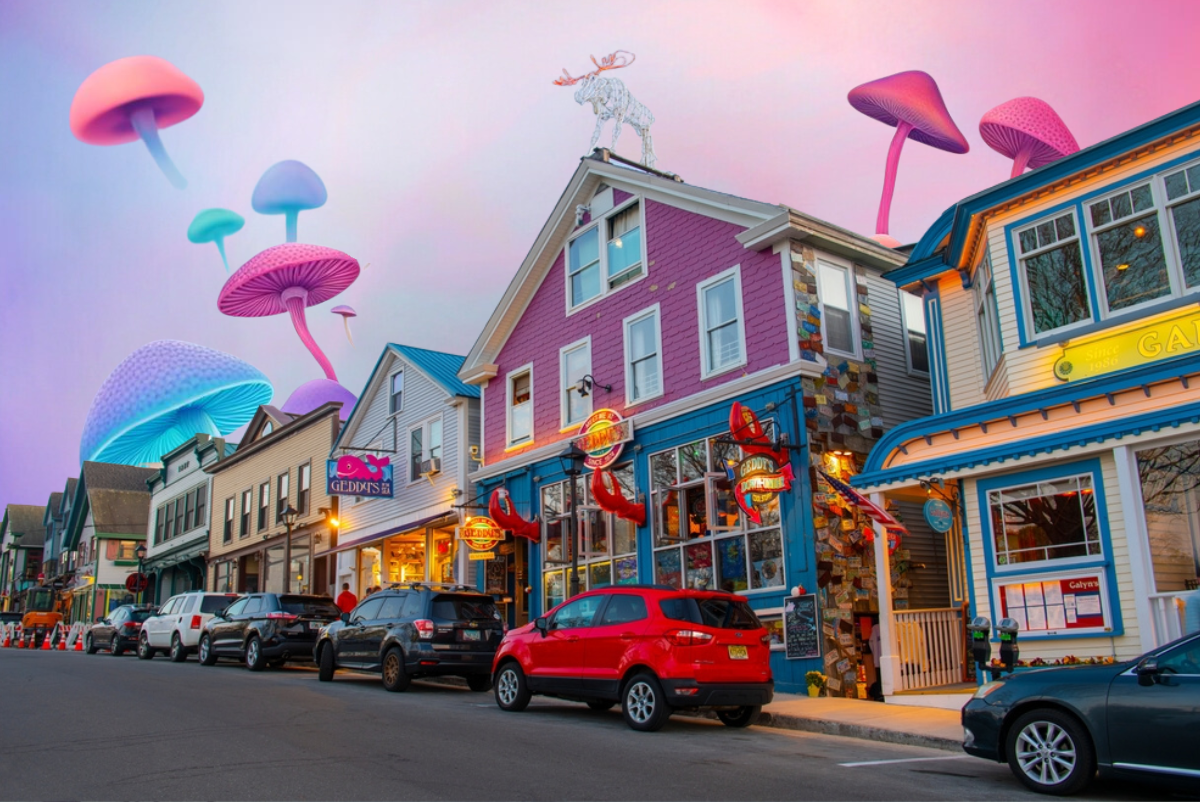
Provincetown is a traditionally Portuguese community where LGBTQ people from around the world visit in search of community and healing. Now the select board of the town has opened up a new opportunity for the winter season when tourism wanes: psilocybin mushrooms.
Categorized as a “breakthrough therapy” for depression by the FDA, psilocybin mushrooms and other psychedelic plants will now be the lowest priority for law enforcement in the community by order of the select board. More specifically, “investigation and arrest of adults for planting, cultivating” and sharing psychedelic plants and fungi will not be permitted. The measure also calls for town employees to treat the possession of all controlled substances as a public health issue rather than a criminal issue.
The organization behind this measure and the decriminalization of six other communities statewide, Bay Staters for Natural Medicine, emphasized psilocybin’s benefits for alleviating opioid addiction and helping traumatized veterans in its presentation for the select board. Its local volunteers also emphasized the economic and tax benefits. Several advocates plan to open retreat centers where people can have guided experiences with psilocybin and enjoy community ceremonies to have spiritual experiences in a group environment.
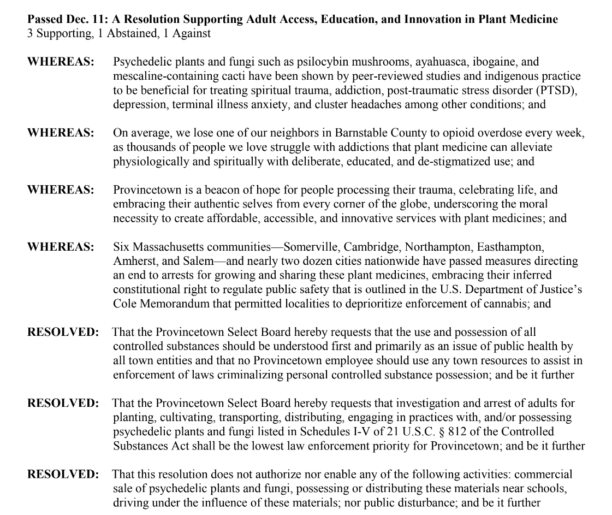
3 Supporting, 1 Abstained, 1 Against
“This vote signals Board support of Provincetown to not only stand strong as a community known for its arts, inclusion and celebration but now also as a destination for healing, which could be a boon to our off-season economy.“ says Steven Azar, resident and small business owner in Provincetown. “Decriminalization of plant medicine will result in more public education on the safe use of plant medicine and its therapeutic benefits…,” said Patricia van Dijkhuizen, a resident of Provincetown, certified psychedelic practitioner, and LCSW.
An economic analysis by advocates found that Provincetown could generate an additional $300,000 in revenue and $13.8 million in economic activity every year. In late fall and winter, the model predicts that thousands of additional people each year will visit the town in the off-season to stay at local hotels, visit community stores, and enjoy the town’s cuisine.
“Our town is now leading the way for affordable access to plant medicine and set an example for our state. The PAC-funded ballot measure should be changed to reflect what communities across the state have called for,” said Anna May Meade, a local author and member of the Visitor’s Services Board who helped lead the effort.
The measure also explicitly calls for state lawmakers to change the ballot question that may be presented to Massachusetts votes next fall. Funded by a secretive entity Boston Globe recently described as “a deep-pocketed, out-of-state PAC,” the ballot question has come under fire for copying the model it created in Oregon where treatments with psilocybin mushrooms often cost thousands of dollars.
“Local communities are asking their elected officials, like Senator Cyr, to substitute the ballot question so that future psychedelic services can be affordable. Even upper middle class families will be excluded from this life-changing care if we create another unelected control commission instead of legislating,” said James Davis, the founder of Bay Staters for Natural Medicine and author of the measures.
Advocates point out that a state representative and former police officer, Representative Boldyga, has filed legislation to legalize psychedelics by creating a simple process by which people can get training and licensing to be guides. For many, this calls into question the motives of the PAC that filed the ballot question and underscores the necessity of substituting so voters are not misled.
“The PAC swooped in uninvited and hired an army of canvassers to lie to voters. If our state lawmakers lack the backbone to substitute the ballot question, then they will be letting veterans like me die and forfeiting our democracy to dark money,” said Michael Botelho, the founder of New England Veterans for Plant Medicine who shared with NBC Boston how mushrooms helped him work through combat PTSD.
